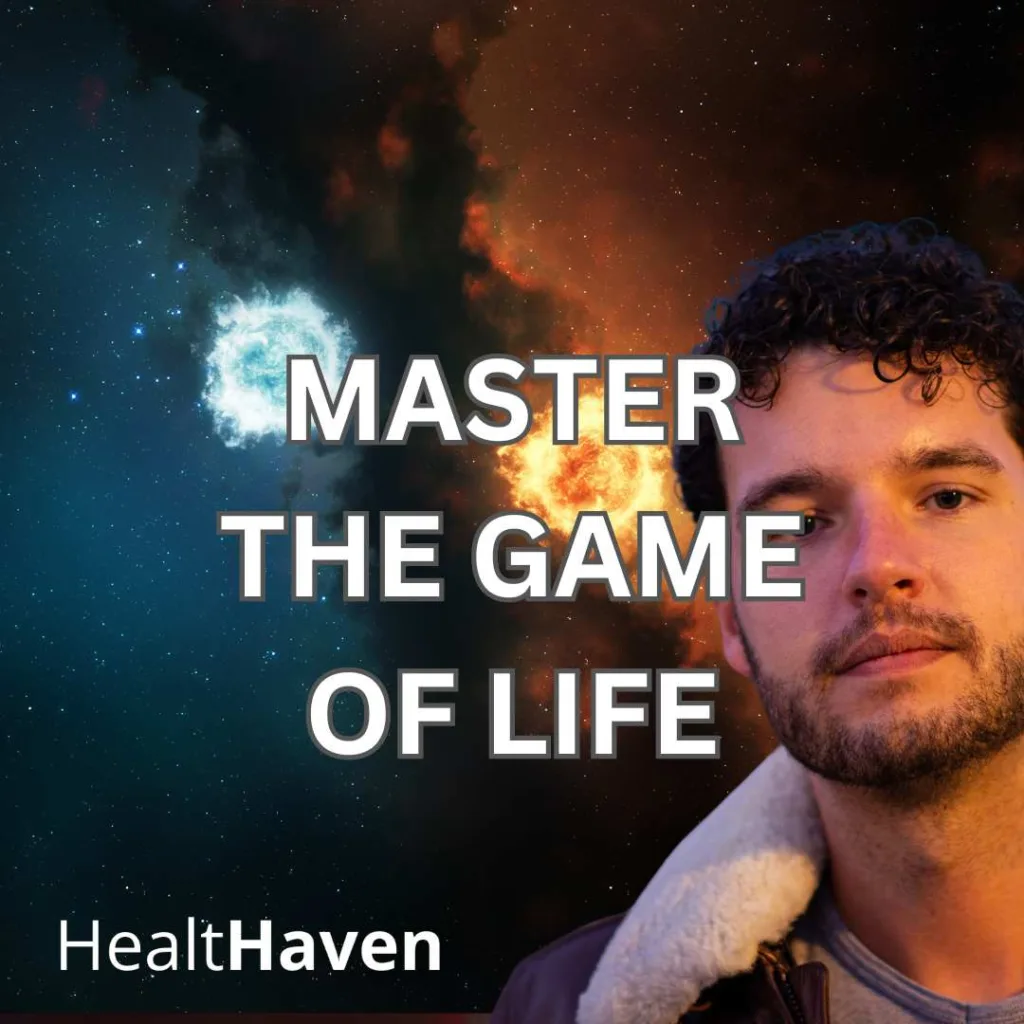Hacking the Game of Life: The 4 Abstract Laws of the Universe
Early men lived in environments filled with uncertainty and risk. They roamed jungles, hunted for food, and faced constant danger. The stakes were clear: be stronger, faster, and more skilled, or face extinction. In such conditions, cause and effect were easily observable. If you sharpened your spear or built muscle, your chances of survival improved. The feedback loop was immediate.
Fast forward to modern society, and the rules aren’t so obvious. The jungle has been replaced by air-conditioned offices, and the lions by emails and deadlines. Mistakes no longer lead to immediate life-or-death scenarios, but the consequences of poor decisions stack up silently, waiting to reveal themselves years down the line.
- You can be unhealthy for a decade before facing the cost.
- You can slack off in your career for years before realizing you’ve plateaued.
- You can neglect personal growth until life feels stagnant and uninspired.
The gap between action and consequence has widened, making it harder to recognize the cause-and-effect relationships that shape our lives. However, despite this, some universal abstract laws persist beneath the surface. These laws are less about physical survival and more about mindset, behavior, and how we interact with the world. If you master them, you gain an edge that compounds over time.
Let’s dive into the four abstract laws that quietly govern the modern game of life.
1. The Law of Attraction
This law often gets dismissed as New Age fluff, but at its core, it’s grounded in psychology and observable reality. The idea is simple: you attract what you focus on.
If you radiate positivity, ambition, and confidence, you’ll draw like-minded people and opportunities into your life. Conversely, negativity, doubt, and complacency repel growth and success.
Biblical Insight: “For as he thinketh in his heart, so is he.” – Proverbs 23:7. This verse echoes the foundational principle behind the Law of Attraction. Your inner thoughts shape your outer world.
Scientific Backing: Neuroscience highlights the Reticular Activating System (RAS) – the brain’s filter that amplifies what you focus on. Ever notice how once you think about buying a red car, you suddenly see red cars everywhere? Your RAS filters the world to match your focus.
Observe this law in action:
- Fit people hang out with other fit people.
- Wealthy individuals network with other driven, successful minds.
- Creative thinkers surround themselves with fellow innovators.
Your vibe attracts your tribe.
Hacking the Law of Attraction:
- Be conscious of your energy. How you present yourself matters. Dress, speak, and behave like the person you want to become.
- Don’t chase, attract. Instead of relentlessly pursuing people or opportunities, cultivate value and let them come to you. Think of it as throwing grain to attract birds.
- Curate your circle. Surround yourself with people who embody the habits and mindset you aspire to. If you want to be healthier, befriend athletes. If you want wealth, associate with financially literate individuals.
- Ask the hard question: “Am I the type of person that attracts what I desire?” If not, start becoming that person.
2. The Law of Momentum
Objects in motion stay in motion. People who are actively pursuing their goals continue to advance, while those who stagnate remain stuck.
Momentum fuels growth. Success breeds more success, and small wins snowball into significant achievements. Conversely, inactivity compounds into further stagnation.
Biblical Insight: “Whoever can be trusted with very little can also be trusted with much.” – Luke 16:10. Small, consistent efforts create momentum for greater blessings.
Scientific Backing: The Zeigarnik Effect explains that incomplete tasks create mental tension, pushing us toward completion. Small wins alleviate this tension and propel further action.
Look around:
- The top students kept learning, while others coasted and fell behind.
- People who consistently show up at the gym stay fit, while those who skip lose progress.
- Entrepreneurs who continuously innovate stay ahead, while complacent businesses fade.
Hacking the Law of Momentum:
- Evaluate your trajectory. If you repeated today’s habits every day for a year, where would you end up?
- Despise zero days. Do something—anything—daily to keep momentum alive. Even 10 minutes of effort sustains progress.
- Break inertia with small wins. It’s easier to move from 1 to 10 than from 0 to 1. Start with micro-actions.
- Stack habits intentionally. Willpower diminishes quickly, but systems endure. Plan routines that create upward spirals.
3. The Law of Adversity (Pain)
Pain is not the enemy. In fact, it’s the most powerful catalyst for growth. Adversity strengthens resilience, sharpens judgment, and deepens character.
Those who face hardship and learn from it outperform those who avoid discomfort. Just as steel is tempered by fire, individuals grow stronger through challenges.
Biblical Insight: “Consider it pure joy, my brothers and sisters, whenever you face trials of many kinds.” – James 1:2. Trials refine and elevate us.
Scientific Backing: Post-Traumatic Growth (PTG) highlights how people often experience profound growth after adversity. Hardships forge mental toughness.
Patterns to note:
- Wealth rarely lasts beyond the second or third generation because successors avoid the struggles that forged the original fortune.
- Athletes with grueling training regimens outperform those who train casually.
- Entrepreneurs who endure failures often build the most durable businesses.
Hacking the Law of Adversity:
- Seek out discomfort. Embrace situations that challenge you. Growth lies on the other side of pain.
- Follow Naval Ravikant’s wisdom: If faced with two paths, choose the more difficult one in the short term.
- Reject shortcuts. Long-term success rarely comes from easy solutions. Grind through the difficult path.
- Reframe pain. Instead of avoiding failure, view each setback as an opportunity to level up.
4. The Law of Karma (Cause and Effect)
Karma is simple: what you sow, you reap. Over time, your actions return to you, often amplified. Help others, and you’ll find help when you need it. Exploit people, and betrayal follows.
Biblical Insight:
“A man reaps what he sows.” – Galatians 6:7. The essence of karma perfectly aligns with biblical teachings.
Scientific Backing:
Studies on prosocial behavior show that acts of kindness lead to increased happiness, reinforcing the cycle of positive returns.
Hacking the Law of Karma:
- Provide value first. If you see someone struggling, offer assistance without expecting immediate returns.
- Be selective. Don’t invest energy in people who resent your help. Choose those who appreciate and reciprocate.
- Trust the process. Life rewards those who consistently do the right thing, even if the benefits aren’t immediate.
Final Thoughts
These four laws may not offer instant gratification, but over months and years, they quietly shape destiny. Master them, and life stops feeling random—you’ll realize you’ve been holding the controller all along. Start applying them today and watch the compounding returns unfold.



